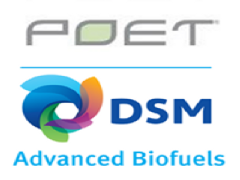Features
Cellulosic developers call for favorable EPA rule on 2014 RVO
Date: 2014-09-25 10:37:38.0
Author: Ethanol Producer Magazine
 USA — Three cellulosic ethanol developers expecting to produce significant volumes yet this year were featured in a press call hosted by the Biotechnology Industry Organization: Poet-DSM Advanced Biofuels LLC, Abengoa Bioenergy and GranBio.
USA — Three cellulosic ethanol developers expecting to produce significant volumes yet this year were featured in a press call hosted by the Biotechnology Industry Organization: Poet-DSM Advanced Biofuels LLC, Abengoa Bioenergy and GranBio.
Spokesman for all three said the 2014 RVO for cellulosic biofuels proposed earlier by the U.S. EPA was likely to be adequate for the expected production from the facilities in the remainder of the year, but the uncertainties created by the proposed reduced RVOs for renewable fuels and the change in methodology in determining the RVO were already having a negative impact on future investments.
“We’re asking the Obama Administration to finalize this year’s rule and keep it on course for the future by setting the annual standards on the ability of the industry to produce biofuel and not on the oil industry’s willingness to make room in the gasoline markets for us,” said Brent Erickson, executive vice president of BIO who hosted the call. “I think that’s what Congress intended.”
The 2007 law that established the RFS is the primary reason the U.S. leads the world in second generation biofuel technologies and the primary reason Abengoa Bioenergy is about to bring its first cellulosic plant online in Hugoton, Kansas, Chris Standlee, executive vice president, said. “We still see potential for second generation development in the U.S., however, there is no question that the proposed rule has had a negative effect on biofuels in the U.S. This proposal signaled a lack of support for the concept of the RFS and has chilled investment.” Standlee added that it is expected that the volumes will be increased, and it is hoped that EPA will also recognize infrastructure concerns are not appropriate in the methodology used to set the volumes each year. Standlee also said that in order to diversify its market risk, Abengoa is developing its second commercial project in Brazil, collocated with its existing plant.
An extended discussion about the RFS creates uncertainty, said Steve Hartig, general manager, licensing for Poet-DSM. “And no investor wants to invest in an uncertain environment, particularly given it’s a new technology,” he said. “Beyond that, it was always known from the start the RFS would lead to a need to go above E10, depending on gasoline demand and the timing of the ramp up of cellulosic ethanol.” If ethanol volume in the U.S. gets limited by the EPA RVO determinations, the opening of any cellulosic plant could lead to oversupply, he warned, bringing ethanol prices down and making the value proposition very difficult.
Vonnie Estes, managing director-U.S. for GranBio explained that while her company is a 100 percent Brazilian company, it is impacted by the U.S. policy. GranBio was initially planning for 2 billion liters of production by 2020. “That plan was done a year and half ago when we were looking at the U.S. and saying there is value in bringing this fuel into the U.S. For us, it’s not a matter of financing, but when looking at the stability and predictability of pricing in the U.S. and what’s going on now with the RVO, we’re taking a step back and saying does it make more sense to build more cellulosic ethanol plants or should we put our capital to work doing something else.”
Both Abengoa and GranBio spokespersons said their companies are within days of producing cellulosic ethanol. GranBio is using both Italian and U.S. technologies to produce about 20 MMgy ethanol from sugarcane straw and bagasse. “Our plan is to export at last half of this fuel to the U.S.,” she added.
Spain-headquartered Abengoa’s plant at Hugoton will host a grand opening event at the plant Oct. 17. Poet-DSM’s grand opening was held two weeks ago. Enerkem, Ineos Bio and Beta Renewables have all brought plants online and are working to optimize their processes. DuPont Cellulosic Biofuels is expected to begin commissioning later this year.
About Ethanol Producer Magazine
Since 1995, Ethanol Producer Magazine is the ethanol industry’s premier trade journal. With its commitment to editorial excellence and high-quality print production and distribution, it is widely recognized as the business-to-business publication of note throughout the global ethanol industry. With compelling profiles, insightful news and commentary, and engaging features on plant optimization, research, science, technology, equipment, environmental health and safety, compliance, marketing, policy and industry events, Ethanol Producer Magazine is the magazine ethanol producers turn to.
For further information about Ethanol Producer Magazine, please visit the website here
Displaying 3 keywords used to tag this article:
- enzymes
- carbon capture
- patents
